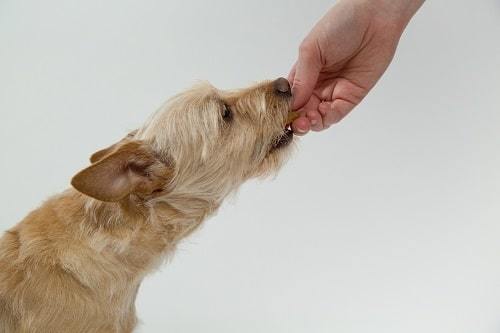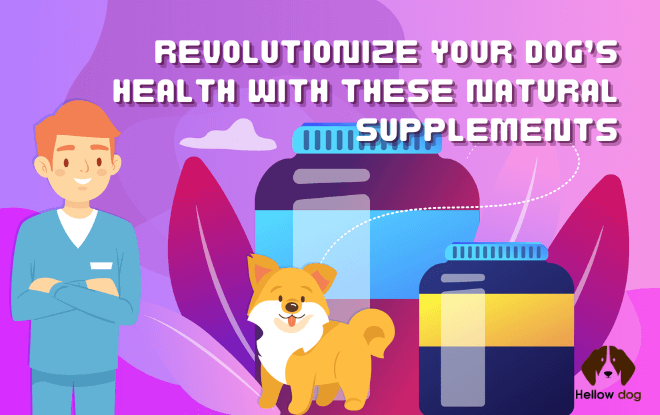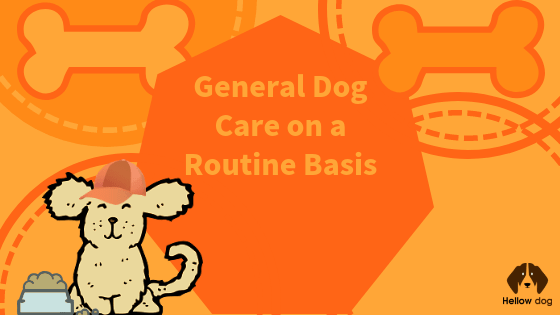As a fellow dog lover, you understand the significance of ensuring your four-legged friend’s health and happiness. You may already provide them with a nutritious diet, ample exercise, and regular veterinary check-ups. But did you know that there are natural supplements that can boost your dog’s health and well-being even more?
Natural supplements for dogs contain ingredients derived from plants, animals, minerals, or other natural sources. They can give your dog essential nutrients, antioxidants, anti-inflammatory agents, and other benefits that may not be found in their regular food or treats. Some of the best natural dog supplements include lignans, probiotics, omega-3 fatty acids, glucosamine, and turmeric.
If you want to enhance your dog’s well-being through natural supplements, you’ve come to the right place. In this blog, we’ll explore a variety of natural supplements and how they can benefit your furry friend.

Benefits of Natural Supplements for Dogs
Improved digestion
The best natural dog supplements can help balance their gut flora and prevent common digestive issues such as diarrhea, constipation, gas, and bloating. They can also support your dog’s immune system and prevent infections and diseases.
Reduced inflammation
Inflammation can cause various health problems for dogs, including arthritis and allergies. Natural dog supplements like omega-3 fatty acids and turmeric can help reduce inflammation and prevent these health issues.
Increased energy levels
Natural supplements like B vitamins and iron can help increase your dog’s energy levels, making them more active and alert. These supplements can also help prevent anemia and other health problems related to low energy levels.
Better joint health
As dogs age, they may experience joint problems like arthritis. Natural supplements can help protect your dog’s joints from wear and tear by providing them with glucosamine, chondroitin, MSM, and other compounds that support cartilage formation and lubrication. They can also help your dog maintain a healthy weight and prevent obesity-related joint problems.
Reduced anxiety
Dogs can experience anxiety and stress for different reasons, including separation anxiety and loud noises like thunderstorms. Organic dog supplements can help calm your dog’s nerves and reduce their anxiety levels by providing them with natural herbs such as chamomile, lavender, valerian, and lemon balm. They can also help your dog sleep better and improve their mood.

Top Natural Supplements for Dogs
Omega-3 Fatty Acids
Omega-3 fatty acids are essential for your dog’s well-being, as they support their skin, coat, joints, heart, brain, and immune system. They are a type of polyunsaturated fat that your dog’s body cannot produce on its own, so we need to get them from food or supplements.
There are three main types of omega-3 fatty acids: alpha-linolenic acid (ALA), eicosapentaenoic acid (EPA), and docosahexaenoic acid (DHA). ALA is found in plant sources, such as flaxseeds and canola oil. EPA and DHA are found in fish and fish oil.
EPA and DHA support your dog’s vision, brain function, and heart health. They have anti-inflammatory properties that help reduce pain and stiffness in dogs with arthritis. They also help maintain the skin barrier’s structure and integrity, improving your furry friend’s coat quality and reducing itching and allergies.
Sources of Omega-3 Fatty Acids
The best sources of omega-3 fatty acids for dogs include fish oils, flaxseed, chia seeds, and hemp seeds. Fish oils, such as salmon, sardines, and krill, are the most common sources of omega-3s for dogs. Flaxseed, chia seeds, and hemp seeds are plant-based sources that contain ALA, which is converted to EPA and DHA in the dog’s body.
Recommended Dosage for Omega-3 Fatty Acids
The dosage of omega-3 fatty acids for dogs depends on their weight, age, health condition, and diet. As a general rule, you can give your dog 20 mg of EPA per pound of body weight daily. For example, a 50-pound dog would need 1000 mg of EPA per day.
You can adjust the dosage according to your dog’s response and your veterinarian’s advice. Always consult your vet before starting any supplement regimen for your dog.
Probiotics
Probiotics are live microorganisms that help maintain a healthy balance of bacteria in your dog’s gut. They can support your dog’s digestion, immunity, skin health, and mood.
Sources of Probiotics
Probiotics can be found in some natural foods, such as yogurt, kefir, and fermented vegetables. However, these foods may not provide enough probiotics for your dog, or they may contain other ingredients that are not suitable for them. That’s why giving a high-quality natural dog supplement containing probiotics is better.
Recommended Dosage for Probiotics
The recommended dose of probiotics can vary depending on the size and age of your dog, as well as their specific health needs. Always consult your veterinarian before giving your dog any supplements, including probiotics, to ensure they are safe and effective.
Antioxidants
Antioxidants protect your dog’s cells from the harmful effects of free radicals, which are unstable molecules that can cause damage to DNA, proteins, and membranes. Free radicals are produced by normal metabolism and environmental factors such as pollution, radiation, and stress. Antioxidants can help prevent or reduce inflammation, aging, cancer, and other diseases in your dog.
Sources of Antioxidants
Some of the best natural sources of antioxidants for dogs are fruits and vegetables, especially those with bright colors, such as berries, carrots, spinach, and broccoli. These foods contain vitamins A, C, and E, as well as phytochemicals such as carotenoids, flavonoids, and polyphenols. Other natural supplements that provide antioxidants for dogs are green tea, turmeric, grapeseed extract, and coenzyme Q10.
Recommended Dosage for Antioxidants
Consult with your veterinarian before giving any natural supplement to your dog. As a general guideline, you can follow the instructions on the product’s label or use this formula: 1 mg of antioxidants per pound of body weight daily. For example, if your dog weighs 50 pounds, you can give him 50 mg of antioxidants per day.
Glucosamine and Chondroitin
Glucosamine and chondroitin are naturally occurring substances in your dog’s body. Glucosamine is a building block for cartilage, while chondroitin helps to maintain the fluid within joints, providing cushioning and reducing friction. Together, they can help to support joint health and mobility.
As dogs age, their cartilage can wear down and become thin, leading to inflammation, stiffness, and joint pain. This can affect their quality of life and limit their activity.
By supplementing your dog with glucosamine and chondroitin, you can help to replenish the levels of these substances in their joints and support their cartilage health. Glucosamine and chondroitin can also help prevent further cartilage degradation and slow the progression of arthritis.
Sources of Glucosamine and Chondroitin
Glucosamine and chondroitin can be derived from various sources, such as shellfish, beef trachea, chicken feet, or synthetic materials. You can find them in different forms, such as tablets, capsules, liquids, or treats. The best way to choose a product is to look for one that is organic, natural and has a high concentration of active ingredients.
Recommended Dosage for Glucosamine and Chondroitin
Generally speaking, you can start with a loading dose of 20 mg per pound of body weight per day for 4 to 6 weeks, then reduce it to a maintenance dose of 10 mg per pound per day. You should always consult your veterinarian before giving any supplements to your dog and follow their instructions carefully.
Lignan Supplements
hulls (SDG lignans) and Norwegian spruce tree bark (HMR lignans).
Sources of Lignans
Recommended
Dosage for Lignans
How to Choose the Best Natural Dog Supplements
There are many benefits to adding supplements to your dog’s diet. However, not all natural supplements are created equal, and some may even harm your pooch. Here are some factors to consider when choosing natural supplements for your dog:
Quality
Look for organic dog supplements made from high-quality ingredients and tested for purity and potency. Avoid supplements that contain artificial colors, flavors, preservatives, fillers, or by-products.
Dosage
Follow the instructions on the label and consult your veterinarian before giving any supplements to your dog. Too much or too little can cause adverse effects or reduce the natural supplement’s effectiveness.
Compatibility
Make sure the supplements you choose are compatible with your dog’s diet, health condition, and medications. Some natural supplements may interact with other substances or cause allergic reactions in some dogs.
Reviews
Read customer reviews and testimonials to see how other dog owners have benefited from organic dog supplements. Look for honest and unbiased feedback from customers who have tried the products.

Boost Your Dog’s Health with Natural Supplements
Incorporating natural supplements into your dog’s diet can significantly impact their health and well-being, from reducing inflammation to improving joint health and digestion.
However, before starting any new supplement regimen for your dog, it’s crucial to consult with your veterinarian to ensure that it’s safe and effective for your furry friend







